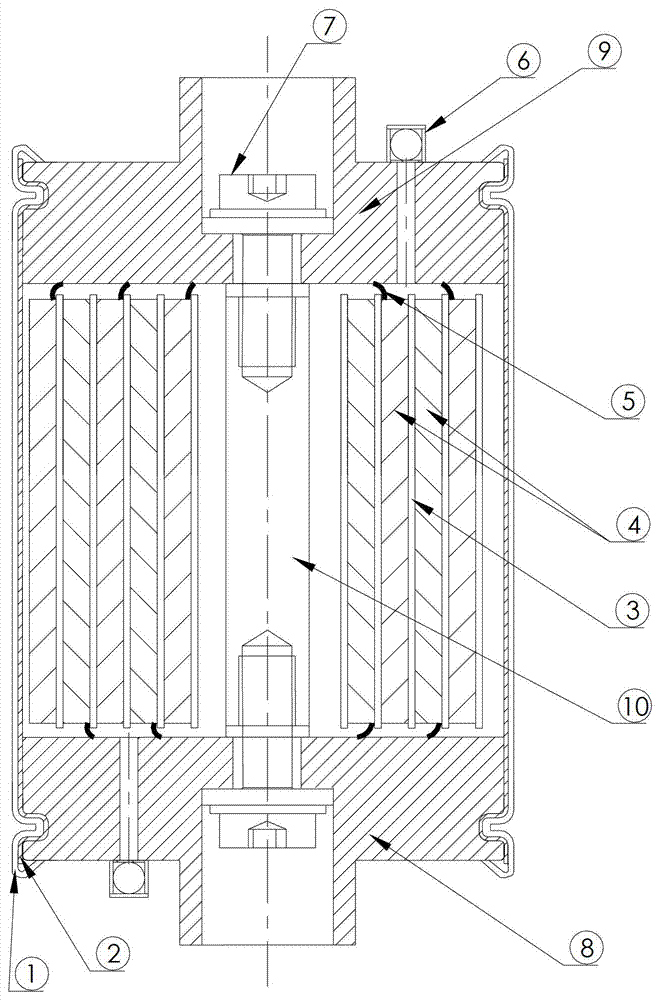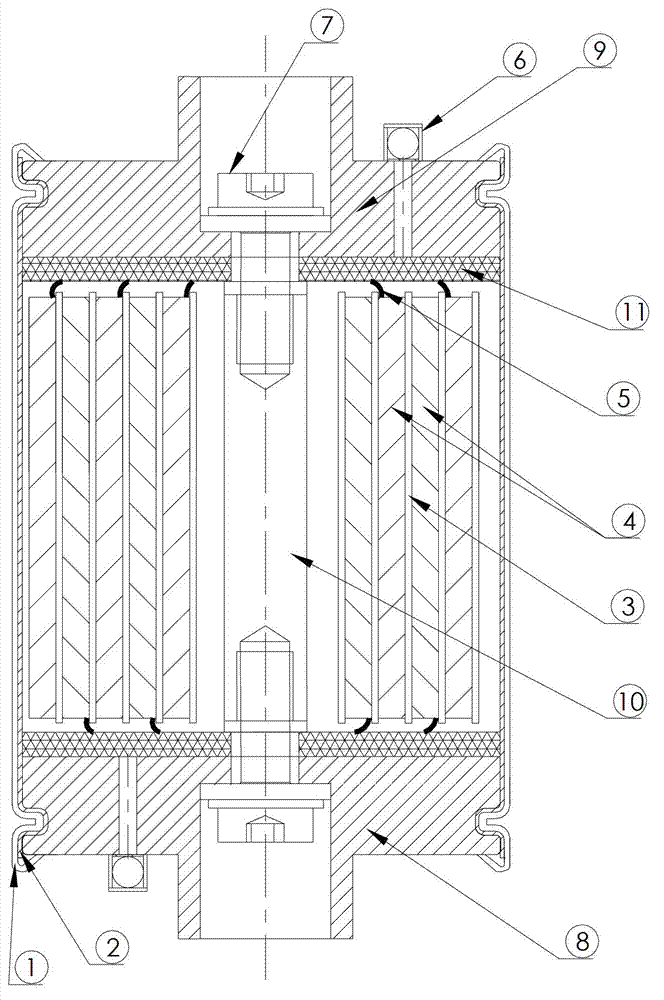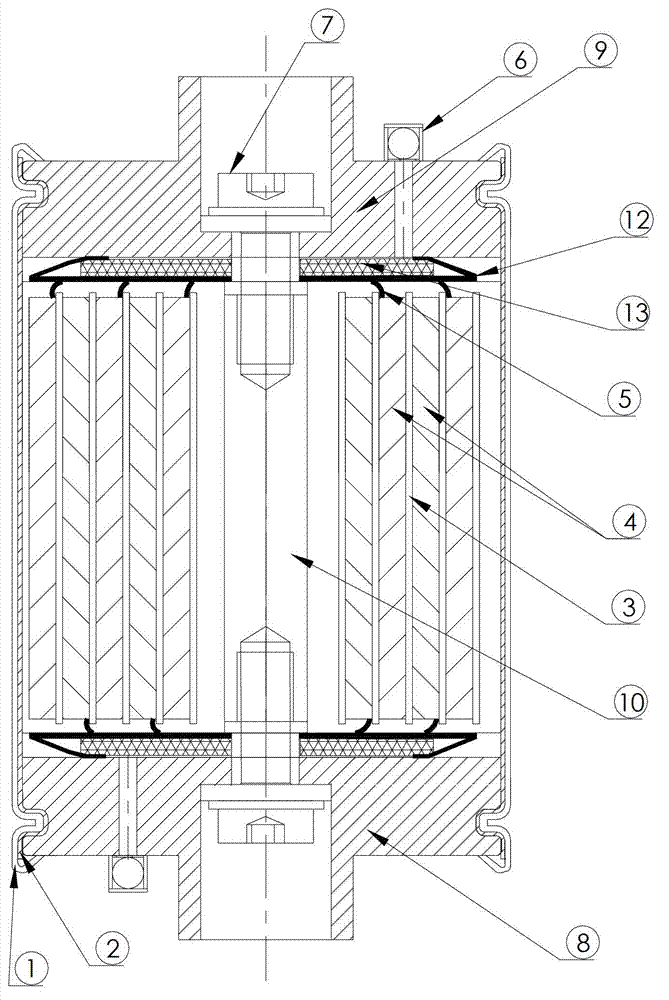Non-welded secondary battery
A secondary battery, non-welding technology, which is applied to battery components, circuits, electrical components, etc., can solve the problems of large connection resistance, insufficient tensile strength, and slow heat export speed of the battery, so as to reduce internal resistance and increase heat The effect of the exported speed
- Summary
- Abstract
- Description
- Claims
- Application Information
AI Technical Summary
Problems solved by technology
Method used
Image
Examples
Embodiment Construction
[0013] Below in conjunction with embodiment the present invention is further described.
[0014] Such as figure 1 As shown, a non-welded secondary battery includes a battery case 1, a plurality of pole pieces 4 installed in the inner space of the battery case, a diaphragm 3 installed between the pole pieces 4, a number of pole pieces leading out basebands 5, two pole pieces of the battery One polarity lead-out end is set respectively at one end, the polarity lead-out end of one end is the positive lead-out end 8, the polarity lead-out end of the other end is the negative lead-out end 9, a slot hole is set on the polarity lead-out end, and the bolts 7 are respectively installed on The slots at both ends are connected and fixed by the fixed shaft 10 installed inside the battery, and the two ends of the fixed shaft 10 are provided with screw holes that cooperate with the bolt 7; the polarity lead-out end is fixed by the bolt 7 and the fixed shaft 10, and the pole At the same tim...
PUM
 Login to View More
Login to View More Abstract
Description
Claims
Application Information
 Login to View More
Login to View More - R&D
- Intellectual Property
- Life Sciences
- Materials
- Tech Scout
- Unparalleled Data Quality
- Higher Quality Content
- 60% Fewer Hallucinations
Browse by: Latest US Patents, China's latest patents, Technical Efficacy Thesaurus, Application Domain, Technology Topic, Popular Technical Reports.
© 2025 PatSnap. All rights reserved.Legal|Privacy policy|Modern Slavery Act Transparency Statement|Sitemap|About US| Contact US: help@patsnap.com



